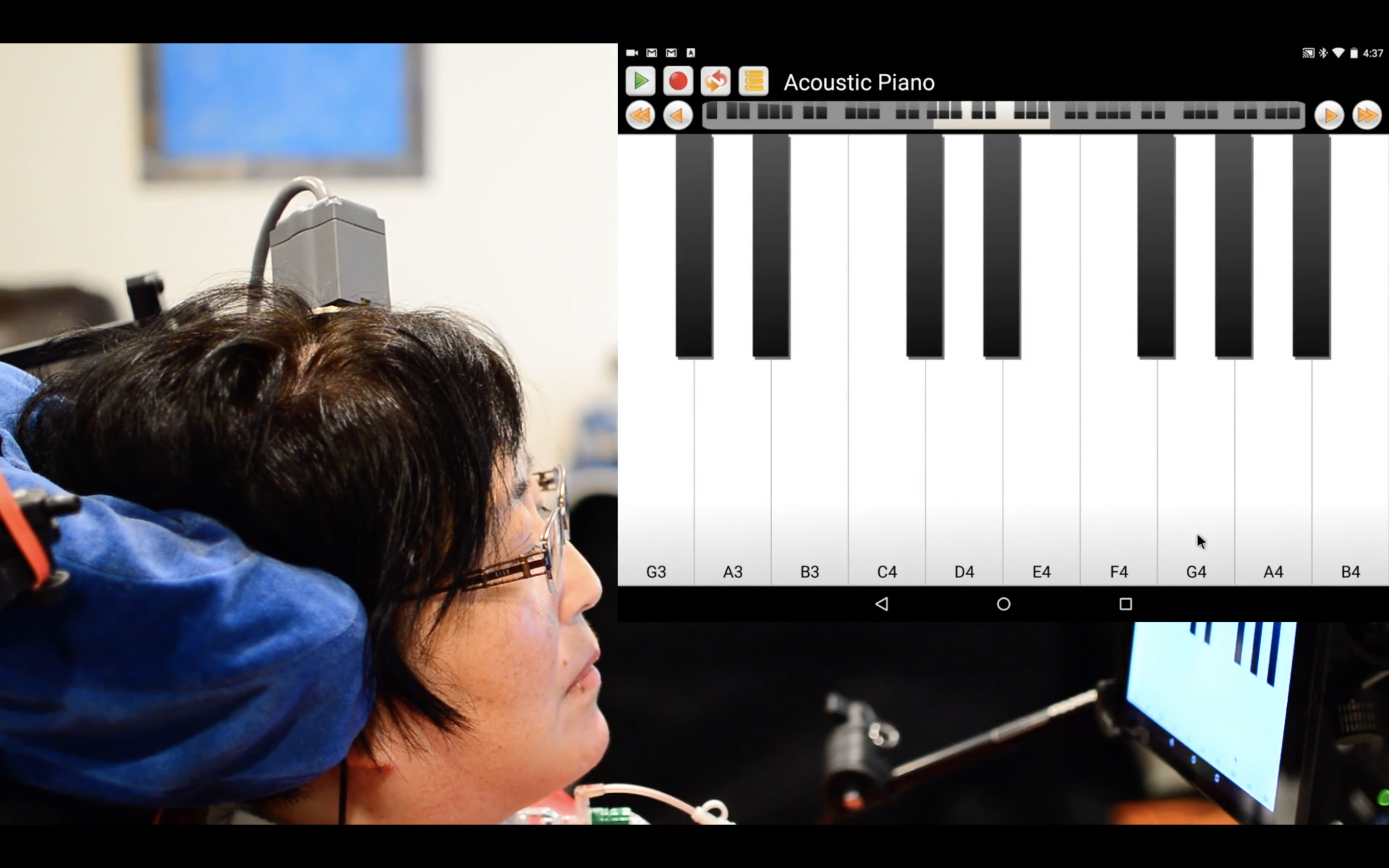Brain-Computer Interface Restores Communication in Paralysis
Smart devices have become significant parts of our everyday life. But for individuals suffering from paralysis, using such devices can serve as a challenge. Now, recent research at BrainGate in collaboration with Brown University shows that brain-computer interface (BCI) can allow individuals with paralysis to directly operate smart devices simply by the thought of moving a cursor.
Restoring communication. Two participants in the BrainGate clinical trial directly control a tablet computer through a brain-computer interface to chat with each other online. The research, published in PLOS ONE, is a step toward restoring the ability of people with paralysis to use everyday technologies.-ScienceDaily
Credit: BrainGate Collaboration via Brown University
"For years, the BrainGate collaboration has been working to develop the neuroscience and neuroengineering know-how to enable people who have lost motor abilities to control external devices just by thinking about the movement of their own arm or hand," says Stanford University Neurosurgeon and senior author of the paper--Dr. Jaimie Henderson. "In this study, we've harnessed that know-how to restore people's ability to control the exact same everyday technologies they were using before the onset of their illnesses. It was wonderful to see the participants express themselves or just find a song they want to hear."
The study was published in PLOS ONE and examined three clinical trial participants with tetraplegia, all of whom used the investigational BrainGate BCI that recorded neural activity directly from a small sensor placed in the motor cortex. The small sensors was able to detect signals associated with intended movements produced in the brains motor cortex. The signals were able to be deciphered and transported to external devices allowing the clinical study participants to navigate through common tablet programs, such as email, chat, music-streaming and video-sharing apps. They were able to communicate with family, friends, and members of the research team as well as other fellow participants. They also surfed websites, checked the weather and bought products online. In particular, one participant, with a musical background, was able to play a snippet of Beethoven's "Ode to Joy" using a digital piano interface.
“A participant in the BrainGate clinical trial plays "Ode to Joy" on a virtual keyboard interface.”
Credit: Brown University
"It was great to see our participants make their way through the tasks we asked them to perform, but the most gratifying and fun part of the study was when they just did what they wanted to do -- using the apps that they liked for shopping, watching videos or just chatting with friends," explains lead author Dr. Paul Nuyujukian--a bioengineer at Stanford University. "One of the participants told us at the beginning of the trial that one of the things she really wanted to do was play music again. So to see her play on a digital keyboard was fantastic."
Watch the video below to learn more:
Source: PLOS ONE, Brown University, Science Daily











